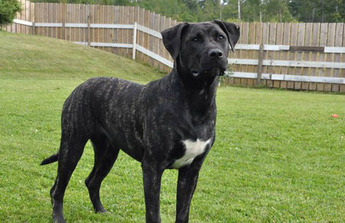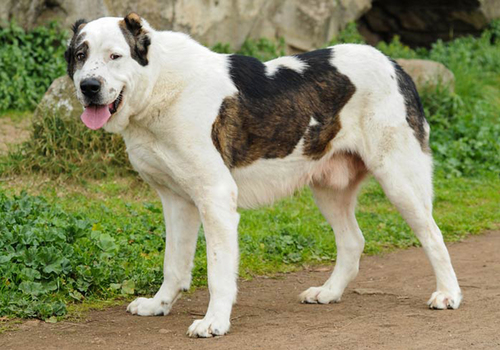Thought to be ancestors of one of the oldest breeds on the planet, there are records of the Central Asian Shepherd Dog that date back over 5000 years. They have always been highly prized for their courage, loyalty, and devotion, often having to work alongside man and other dogs in the challenging regions of Mongolia, the northwest border of China, the Urals, Asia Minor, and the Caspian Sea. In times long past, there many different varieties of Central Asian Shepherd Dogs found in the various regions of the world where they were bred. However, attempts to standardize the breed took place under the Soviet era during the 1920s.
More recently, a different type of dog has appeared on the scene which is known as the Central Asian Ovcharka and although they are descendants of the original dog, there is a difference in their size, temperament and coat colors. With this said, these handsome, proud dogs are still thought to be the "purest" of all breeds having not been interfered with by man to the same extent as many other breeds that are around today.
Central Asian Shepherd Dogs are still used today in the Mongolian mountains and working alongside nomads that roam the lands right through to the Kara Kum deserts and their job remains the same as it always was which is to guard the people, their animals, and livestock in some of the harshest conditions on the planet. They are often referred to as the "Wolf Crusher" or "Volkodav" because of their courage, stamina, and endurance.
With more information about the Central Asian Shepherd Dog being made available to people in other parts of the world, these proud and devoted dogs are gaining popularity outside of their native lands, all thanks to their good looks and their charming, loyal natures. Although these handsome dogs are not recognized by The Kennel Club here in the UK, they are recognized by many other international breed associations.













